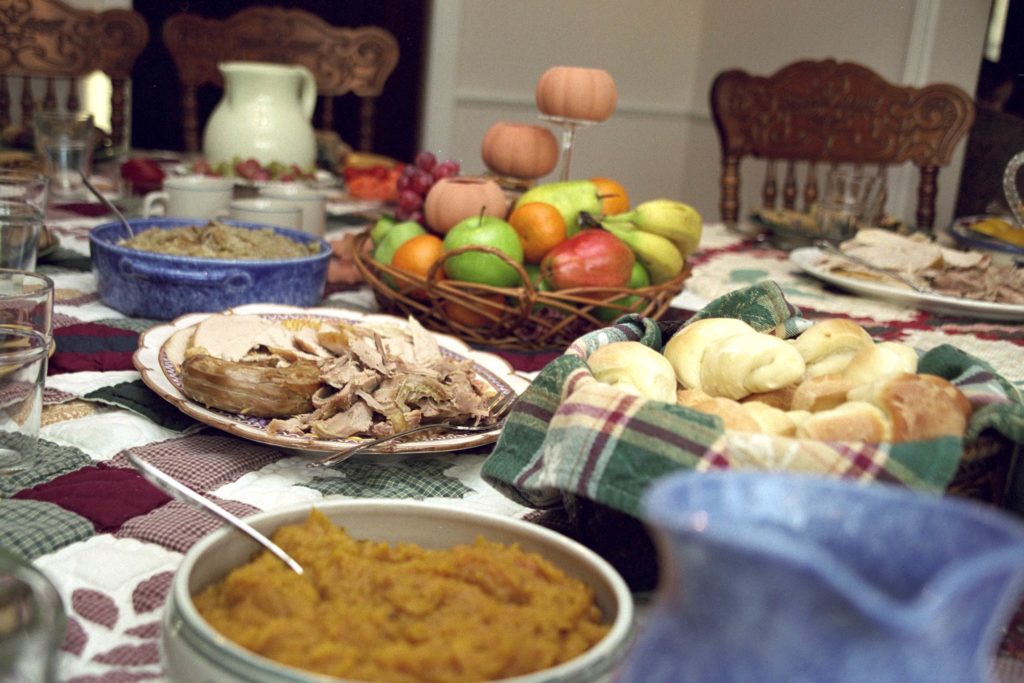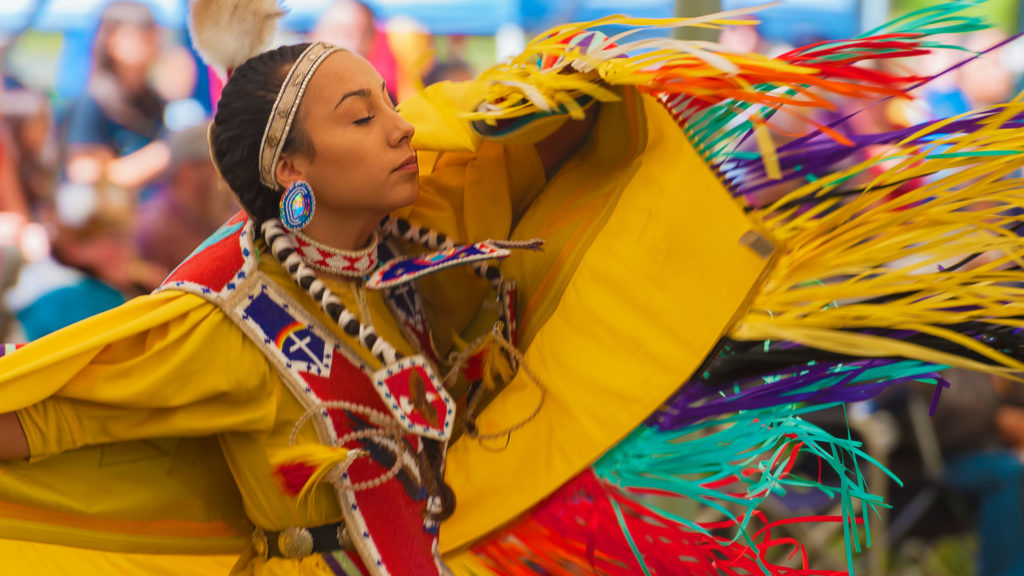The first Thanksgiving in Massachusetts was 400 years ago this year in 1621.
I like Thanksgiving. I like the fact that sitting down to virtually the same meal I had as a kid brings back all kinds of memories: my childhood, my children’s childhoods, now my grandchildren’s childhoods. I envision the childhoods of my parents and grandparents, too, imagining what it was like for them.

Two of my forebears, William Towne and Joanna Blessing Towne, sailed out of Great Yarmouth, Norfolk, England in 1635 and landed in Massachusetts Colony. They missed the first Thanksgiving, but not by much. I wonder whether they celebrated Thanksgiving after their first harvest and, if so, what it was like.
I also appreciate a day to focus on gratitude, to name our blessings. To remember that even our imperfect, sometimes frustrating, families and friends are a gift. To aim to be more of a gift and less of a frustration myself.
The Rev. Tish Harrson Warren is thankful for Thanksgiving, in part because
“Thanksgiving Day softly asks us to practice thanks for the lowly lovelinesses that make up each of our lives, to take time to notice the constant and sweetest relation offered by the giver of every good gift.”
Like everything else in this country, though, we know that Thanksgiving Day is rooted in colonialism and, therefore, in the belief that Europeans had rights that other people didn’t have. We’d like for Thanksgiving to be nothing but family and food, but it isn’t. For many, it represents deep sorrow and profound loss.

I mourn, too, the fact that this nation observes the day after Thanksgiving as “Black Friday.” We count our blessings one day, and then turn right around to indulge in an orgy of self-centered consumerism. It is emblematic of our worship of material goods and of the superficiality of the culture as a whole. Replacing Advent with the “Christmas Shopping Season” is a heresy, and we should name it as such.

I encourage you, therefore, on the day after Thanksgiving, to ignore Black Friday and observe Native American Heritage Day. The first American Indian Day was proclaimed by Calvin Coolidge even before Indians were given U.S. citizenship in 1924. Barack Obama set the day after Thanksgiving as an annual observance. But how to observe? Lots of ways. Here are just a few possibilities—I suggest picking at least one:
- Read and reflect on this article on the 400th anniversary of the first Thanksgiving . Be sure to watch the video embedded in it.
- Kaitlyn B. Curtice, author of Native: Identity, Belonging, and Rediscovering God, offers these 5 Commitments for Native American Heritage Month that will aid in your reflections, I’m sure.
- Read some of Joy Harjo’s poetry. She is the current Poet Laureate of the United States. One of her many books, An American Sunrise: Poems, was the featured book of the NEA Big Read Lakeshore this fall right here in Holland, Michigan.
- If you’ve never attended a pow wow, make a commitment to attend one next summer or fall. They are wonderful events, and quite common across the U.S. and Canada. Find one near you at powwows.com Admission is usually inexpensive. Take some cash to buy food from the vendors, along with some jewelry or a book or a traditional craft. That’s part of the economy of a pow wow–vendors pay fees that help finance the event and, in return, they need to profit from their sales.
- Read four pieces Michigan Public Radio did for Native American Heritage Month this year. Here’s a link to Part 4, which includes links to Parts 1, 2, and 3.
- Spend some time reading Indian Country Today. Bookmark it and see what’s new once a week or so.
- Spend some time on Mark Charles’s website, wirelesshogan.com. He is a Christian speaker, author, and activist for Native rights. Be sure to read about the Doctrine of Discovery.
Gratitude and grief are both excellent reasons to strive for racial justice. Blessings on your work.

